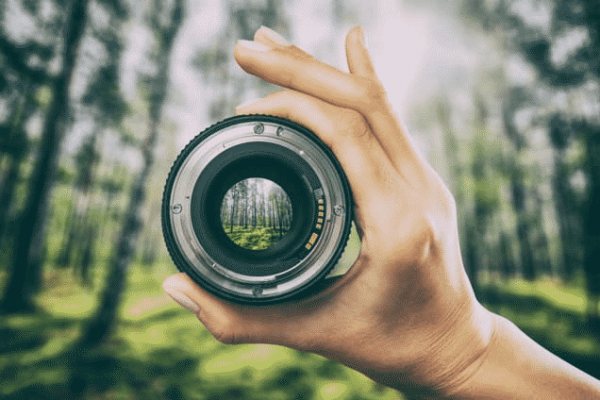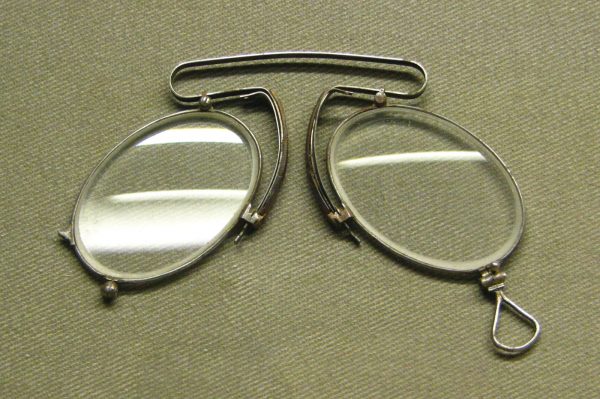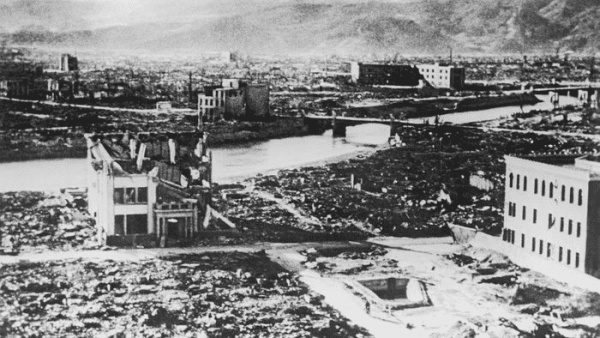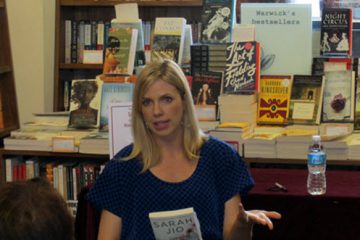History is a complex system of often interrelated events, which can sometimes be extremely difficult to understand. You can reveal the secrets of the past only if you analyze them from different perspectives. And that is where the historical lenses come in handy.
If you don’t have any idea as to what the historical lenses are, think of the lenses on a camera. Each lens gives you a unique view of the object. And so the historical lens does. Its main function is to provide you with such a view of any historical topic, that will differ from the generally accepted one. Basically, a historical lens is just a means of studying history in different ways, which can turn out to be surprising and refreshing. Historical lenses help historians narrow a topic for a discussion.
But there are limits as to what a lens can do. As you see in the image, the outside is a little bit fuzzy. So, we need to change the lens from time to time to accomplish different purposes and to see as many things as possible. It wouldn’t make any sense to use the same lens to observe the Moon and to read a book.

Besides, a lens is sometimes referred to as a methodology, approach, or even field. It is a way in which you conceive, research, interpret, and present your results as well as a sort of community within the discipline to which you are speaking while drawing from and building on the work of others in that community.
Why Are Historical Lenses Important?
With the help of the historical lenses, it is easier for us to make sense out of an event: we can see it in a way we never would have before. They transform our knowledge from simple and one-sided into a deeper one. By applying historical lenses, we can achieve a thorough understanding of the effect a particular past event had on society, and, consequently, make our own conclusions and improve our present. Just don’t be afraid to open your mind and broaden your outlook! Discovering something new where you thought you knew everything is always fun.
And if you are a historian researching information, then it is of vital importance to you to thoroughly inspect historical sources and determine from what kind of perspective this source was written. Otherwise, you may find yourself with a source highlighting information from a lens different from the one you intended to write. Investigating sources also ensures that you have enough material to compose your work with relevant evidence from the same lens.
Three Fundamental Categories of Historical Lenses
There is a long list of historical lenses (and by “long” I mean “LONG”). Anything might become a lens, from a Marxian approach to religion. However, there are three most popular types of historical lenses: political, economic, and social. But you are free to use any other lenses you are comfortable with (environmental, military, racial, cultural, scientific and technological, etc.) if you want to investigate a specific area of history. Although they lie somewhere in between the aforementioned broad categories, or even overlapping them, that doesn’t make them less useful.
Now it’s time to take a closer look at three historical lenses, which are most frequently applied to the human past.

Political Lens Definition
The political lens deals with all the components in an event:
- who was involved;
- what were their interests or stake in the event:
- what decisions were made etc.
Moreover, it looks at the relationships between those who have power, be it in the government, the workforce, or the community, and those who do not have power, making it a good lens to study things such as presidential race or community protests.
For a case in point, after 9/11 President Bush decided to bomb Iraq over Saddam Hussein’s activities. And you can gain a profound understanding of the situation by answering these questions from the political perspective:
- Who was in the room when the decision was made?
- What benefits would the USA or the rest of the world have from these bombings?
- What effect did the bombings have?
- Was their main objective met?
One thing you need to keep in mind when dealing with political lenses is to be specific. Know all the people who were in the room, find out the exact consequences of the event. Be as precise as you can. Overlooking some details may badly distort your interpretation.
Social Lens Definition
The social lens in history has to do with the way the society, culture, people, traditions, and lifestyle were affected by a particular event. Its areas of interest are also gender, class, ethnicity, race, the interaction between different groups of people and within their own group, and many others.
A historian may want to study how immigrants coped with creditors they endured when coming to America from the social perspective. Another example is: when North America was first discovered, the explorers brought more than the European way of life. They also brought diseases, which wiped out the entire tribes. How were the Indians affected? Analyzing this case through a social lens will make us see the whole picture.
The point is, communities are not the same. And they don’t need the same solution for all problems they are facing. There is no universal answer to all questions. That’s why people need to look at the situation through a social lens. It can customize things and develop solutions that help people in various places, taking into account their beliefs, values, and some individual circumstances. Thus, real problems will be solved, not fictitious ones.
Economic Lens Definition
The economic lens allows us to look at the state of the economic situation before, during, and after the event. It is also focused on the economy on local, national, and international levels, the relationship between consumers and the market, the way the government regulates the business, the labor issues, etc.
For example, we can take a look at how the economy of the USA changed after World War II. To make your analysis full, you should explore around ten years leading up to the war, and that would be the Great Depression, as well as ten years after the war, and then we would have the beginning of the Cold War. With that being done, compare all the three historical periods and make a conclusion.
Historical Lenses of the Atomic Bomb
To provide you with a historical lens example and give you a wider understanding of the topic, we will discuss the use of the atomic bomb in Japan during World War II. The events which lead up to the decision to drop the bomb and the events which occurred thereafter can be presented in various ways through a historical lens.
Let’s take a social lens first. It will highlight the effects the bomb had on Japanese citizens. This lens may appeal to historians interested in the personal accounts of bomb survivors, such as Junko Morimoto (2015), and provide a better look into the lives of citizens before and after the bomb, how families and communities were split apart. This lens could also be used to underscore the prejudice towards Asian-Americans during the war.
If you approach the event from an economical stance, it will highlight to you the way the bomb impacted the economy of Japan. In fact, it set Japan into economic turmoil, because the bomb destroyed the livelihoods of hundreds of thousands of people.
The political lens allows us to see that there were global political tensions after the use of the bomb, and the political tension yielded the development of the AEC (Osborn, 1949). Such an approach would likely appeal to political historians interested in learning about politics of the mid-1940s, or legislative actions, like the Atomic Energy Act of 1946. Others, like scientists, may be interested in this topic to discover the history of the AEC.
As you see, taking one topic and exploring it from several perspectives invests a way more to our knowledge, than applying only one lens.

Is History a Lie?
After all, you have read here about historical lenses, you may think: “We are all fooled by historians. They let their personal biases slip into their works and we cannot know whether they were right or not”.
Although we believe that historians are held to unwritten moral standards to keep history alive through truth, we cannot be sure about it. We are all humans, after all. And even unintentionally, a historian’s own values and interests may be advocated into his work, thus changing the history, or at the very least, how the same historical event is interpreted.
You may ask yourself now: “How can I avoid being fooled by historical prejudice?” Referencing back to source investigation, the investigator not only needs to determine the historical lens a source is being written from but also he or she must critically evaluate if a source has been influenced by any biases which may prove the source as unreliable.
Historical Lenses and History’s Value
How can modern society exist without history? The simple answer is that it can’t. Our world nowadays is built on what has been learned from every possible aspect of history. For example, evidence-based medicine couldn’t have expanded without the reforming of practices years ago. Technology would not exist as it is today if it weren’t for the awe-inspiring ideas of famous inventors. And who’s to say where modern human morality would be now without the significant religious influences of years past. The modern world is directly rooted in the knowledge acquired and studied from history.
As a civilization, it is essential to place value in the study of history to better determine a connection to the past. A prime example of applying history to the present can be explained from what we have learned regarding the atomic bomb. Through the story in Japan, society has learned that nuclear weapons are destructive forces that yield catastrophic outcomes. With this knowledge, many countries have since limited and prohibit these weapons of mass destruction. However, the countries that conceal nuclear weapons are historically the ones that have caused wars, revolutions, civil unrest, and terrorism.
For extra content on the value of history, watch the video below:
Are People Obligated to Know History?
Yes. And we are going to be straightforward as to reasons why you should know the history.
- There are only two kinds of people in this world: there are people that are tuned in and there are people that don’t care. They wake up every day, do monotonous activities, and go to bed. They are stuck in a rut.
They say ignorance is bliss, then ignorance or stupidity is happiness. But that’s not true. Ignorance is at the core of human misery. If we are not empathetic, because we don’t know stuff, then we can’t fix stuff. So it’s better to be someone who knows stuff, huh? - History is interesting. Seriously. There are duels, death, love, fame. It’s like you are reading a nail-biting best-seller with unexpected twists in the plot and charismatic characters. History becomes particularly captivating when you get to the micro. People’s fantastic life-stories can knock you off your feet!
- Do it because you’re supposed to. You’re a human being, and there is a part of you that is responsible for your natural desire to learn about the world around you. After all, living your life as a knowledgeable and well-rounded individual is much more exciting!
- The future of the world depends on it. No nation can live in ignorance without impunity. One of the biggest problems in society is the “uneducated vote”. It occurs when people don’t realize how important voting is for the country and when they don’t investigate previous voting history. These “uneducated votes” tend to be based on the cut-throat propaganda heard on the radio and seen on TV, instead of forming a solid and unbiased opinion through historical research. Such votes hurt communities: because of them, irresponsible political leaders can gain power and make things worse.
Now you know everything about the historical lenses and their importance, as well as the reasons for learning history. Explore the past to improve your future!
FAQ
What are the historical lenses?
A historical lens is a manner in which historians approach the same historical topic.
What are the types of historical lenses?
There are many different types of historical lenses, but there are three fundamental categories: social, economic, and political.
Why are historical lenses important?
We can gain a deeper understanding of a particular past event and learn some lessons from it by applying a historical lens.






I like history and everything related to it so much, I did not expect to see such an interesting article on this site about history, or rather about its vision, with respect to the author! I haven’t read this for a long time, a very cool and deep analysis) I recently learned about this effect, and now history is one of the most critical disciplines in my opinion because everyone around is doing the same as decades ago))))